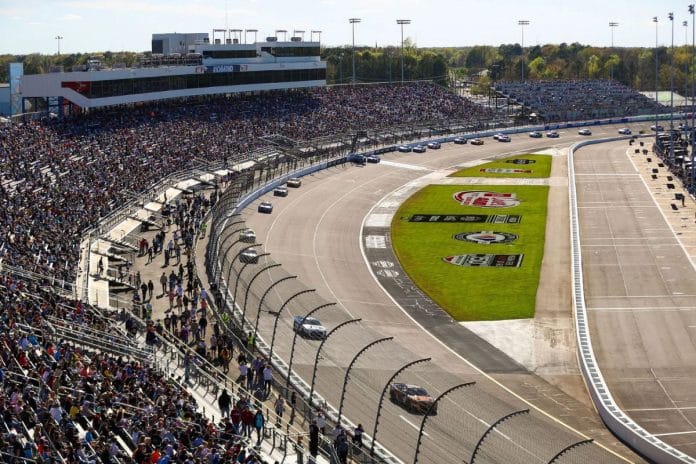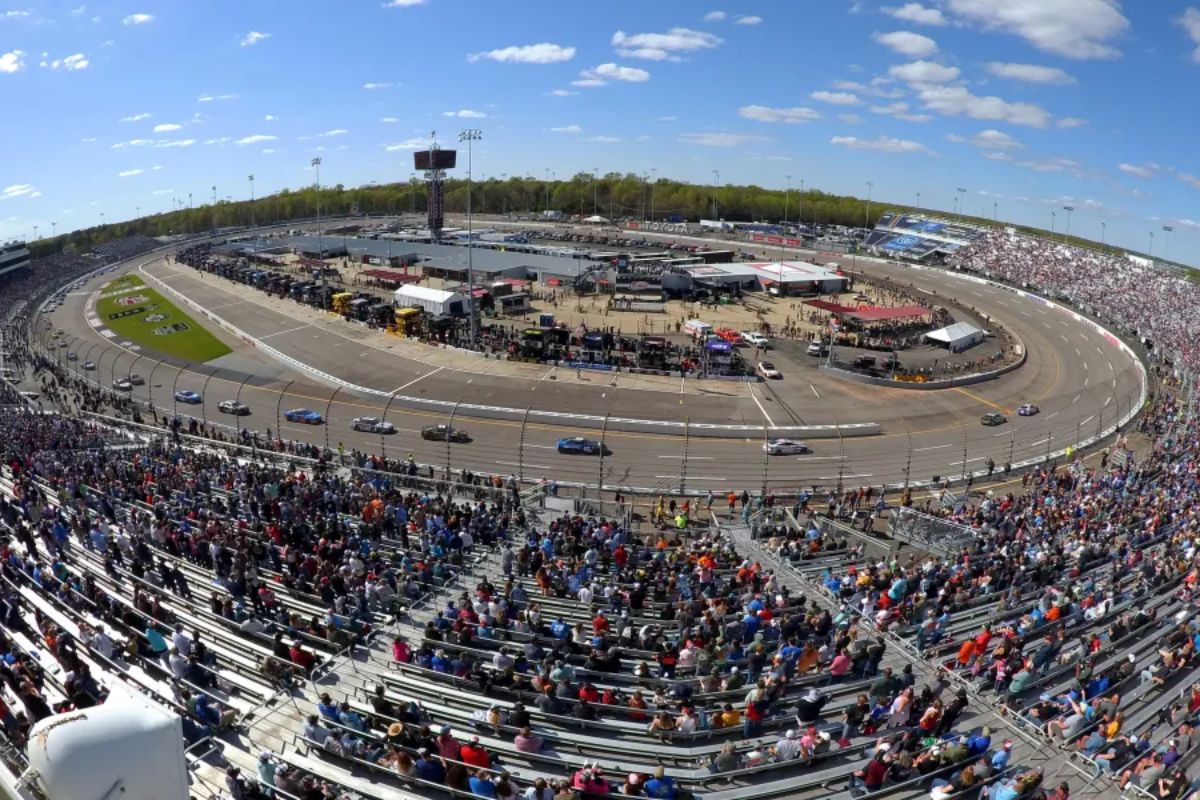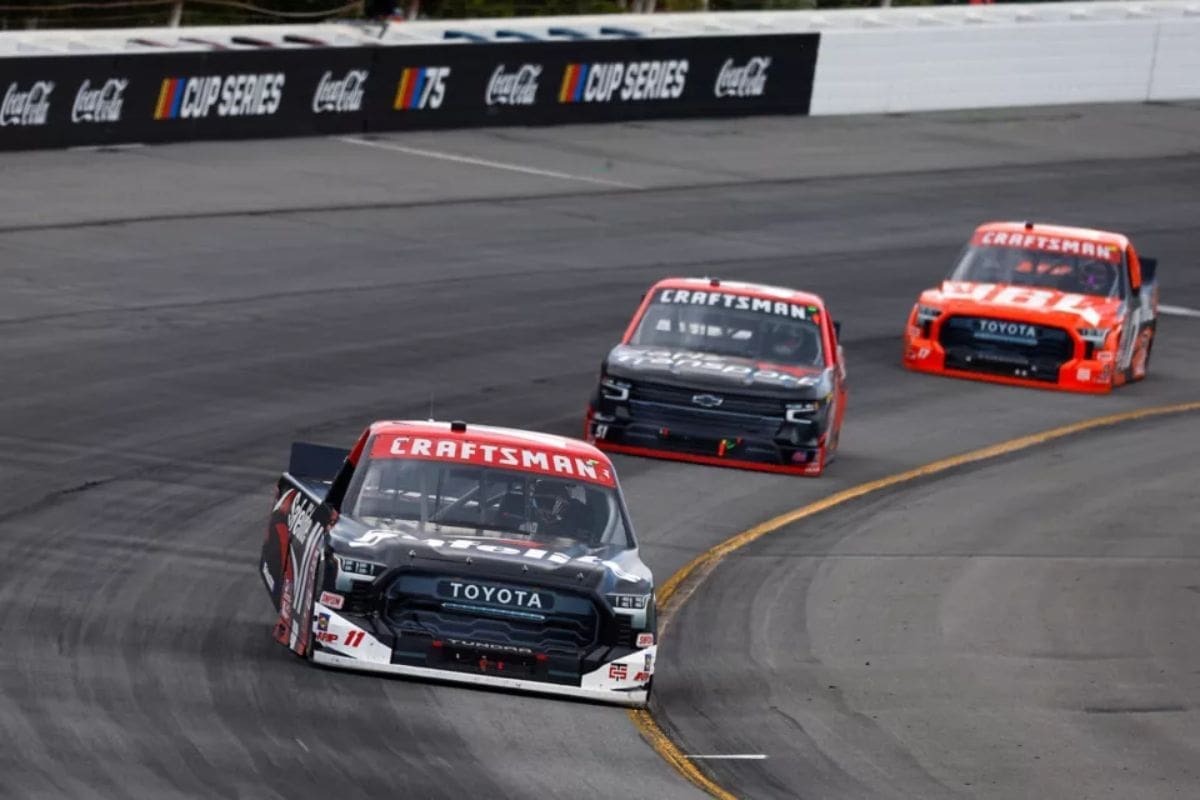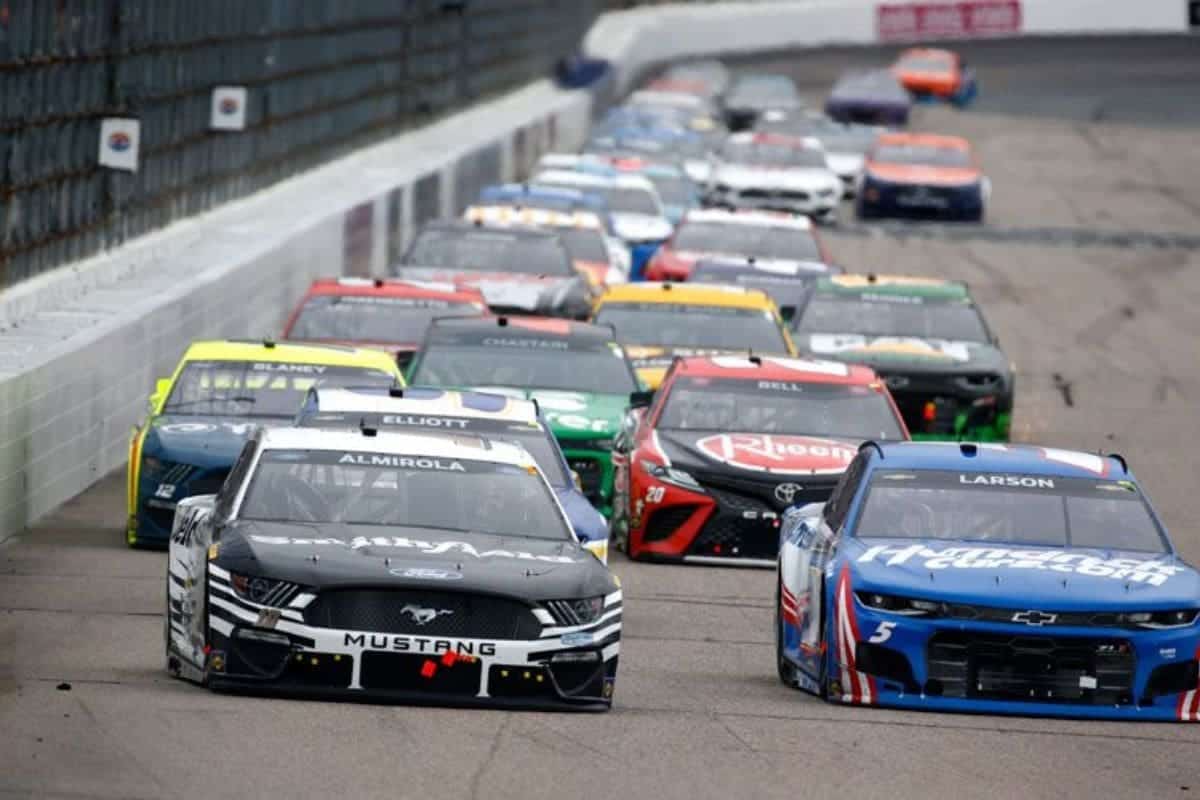NASCAR Richmond Prize Money: This weekend’s NASCAR events at Richmond Raceway present a notable disparity in prize money, with the Cup Series boasting a total pool of $7,925,121—an increase of nearly $500,000 from the previous year—while the Truck Series faces a more modest $744,784. This financial landscape amplifies the competitive dynamics as drivers like Martin Truex Jr. and Christopher Bell not only endeavor for victory but also seek crucial points for playoff positioning. The implications of these earnings extend beyond immediate payouts, raising questions about team strategies and future investments in a sport defined by both talent and financial insight.
Key Highlights
- The total Cup Series prize pool at Richmond is $7,925,121, an increase of nearly $500,000 from last year.
- Prize distribution for the Cup Series is based on performance metrics and historical results, rewarding top drivers.
- Drivers like Martin Truex Jr. and Christopher Bell are favorites, each with opening odds of 9-2.
- The Truck Series prize pool decreased to $744,784, posing financial challenges for teams.
Richmond Raceway Returns with Hefty Prize Money
As drivers prepare to compete at Richmond Raceway for the alternate time this year, the infusion of substantial prize money highlights the growing financial allure of the NASCAR circuit. The 0.75-mile D-shaped track, known for its unique challenges and vibrant fan engagement, serves as a critical venue in the NASCAR ecosystem. The lucrative nature of the event not only incentivizes drivers but also raises the overall competitiveness of the series.
The substantial prize fund allocated for this race reflects a broader trend in the sport, where financial rewards are becoming increasingly central to attracting and retaining top talent. With drivers eyeing the prize, the stakes are amplified, fostering an environment where strategy and skill must intertwine seamlessly. The dual presence of the Cup Series and the Craftsman Truck Series on the schedule further improves the potential for earnings, creating opportunities for both seasoned veterans and emerging talents.
Moreover, the timing of this race, following a two-week hiatus due to Olympic coverage, adds an element of anticipation. Teams have had the opportunity to recalibrate and strategize for this critical crossroads in the season. The financial incentives not only strengthen the competitive landscape but also signify the evolving nature of NASCAR as it seeks to appeal to a broader audience and improve its marketability.
Cup Series Prize Money Increase
The recent announcement of a total prize pool of $7,925,121 for the Cup Series at Richmond Raceway emphasizes a notable financial improvement, reflecting the sport’s commitment to advancing competition and rewarding driver performance.
This increase of nearly half a million dollars from last year’s $7,565,800 is indicative of NASCAR’s tactical direction in elevating the stakes for its top-tier series.
Purses for Richmond weekend, including all payouts, all positions, all charter payouts based on participating and historical performance, contingency awards, etc.:
Cup: $7,925,121
Truck: $744,784
— Bob Pockrass (@bobpockrass) August 7, 2024
The distribution of this prize pool is intricately tied to performance metrics, historical results, and contingency awards, which incentivizes drivers not only to compete but to excel.
Such financial incentives are fundamental in fostering a competitive environment where talent and skill are adequately rewarded. By improving the prize structure, NASCAR not only attracts top-tier talent but also engages fans more deeply, as they witness the stakes grow higher with each race.
Moreover, the increase in prize money reflects broader trends within motorsport where financial rewards play a vital role in sustaining teams and drivers.
As costs rise in the sport, particularly concerning technology and logistics, a more substantial prize pool can alleviate some of the financial burdens faced by teams, allowing them to invest in better equipment and talent.
Truck Series Prize Money Decrease
This season, the Truck Series is facing a notable financial setback, with its prize pool decreased from $808,354 to $744,784, posing challenges for teams working towards profitability. This decline in prize money not only affects the immediate financial landscape of the series but also raises concerns about the long-term viability of teams operating within this tier of NASCAR.
The reduction may compel teams to reassess their budgets and operational strategies, potentially leading to cuts in personnel or resources that are vital for competitive performance. With a shrinking purse, the incentive for securing sponsorship deals could intensify, as teams look for alternative revenue streams to compensate for the diminished prize earnings. This is particularly significant for smaller teams that rely heavily on prize money to sustain their operations.
Furthermore, the financial strain may impact driver development and talent acquisition. With fewer financial resources available, teams could face difficulties in attracting and retaining top driving talent, which in turn affects the general competitiveness of the series. The implications of this decrease extend beyond individual teams; it poses questions about the attraction of the Truck Series to sponsors and fans similarly, which are fundamental for its growth and sustainability.
As the season progresses, teams will need to navigate this challenging economic environment while remaining focused on performance, particularly for those like McAnally-Hilgemann Racing’s Christian Eckes, who currently leads the series in points. The ability to adapt to these financial challenges will be imperative for success in the Truck Series.
Favorites to Win at Richmond
Analyzing the upcoming Richmond event reveals a tight competition among top contenders as drivers vie for vital playoff positioning. With only four races remaining before the playoffs, the stakes are raised, and the tension intensifies.
Among the favorites, Martin Truex Jr. of Joe Gibbs Racing stands out, boasting opening odds of 9-2. Truex, who nearly clinched victory earlier this year at Richmond, seeks not only to secure a playoff spot but to mark a notable accomplishment in his final season.
His teammate, Christopher Bell, shares the same odds of 9-2, having established himself as a formidable presence this season with three victories. A win at Richmond would further solidify Bell’s reputation and improve his status among elite drivers in NASCAR.
Additionally, Denny Hamlin and Kyle Larson, both at 6-1 odds, represent strong challenges. Hamlin’s experience and past success at Richmond make him a constant threat, while Larson’s aggressive driving style and recent performances position him as a contender capable of taking advantage of any misstep from rivals.
As the race approaches, the dynamics among these top contenders will be vital. Each driver not only aims for victory but also seeks to utilize this race as a tactical move in the larger playoff landscape. The interplay of skill, strategy, and perhaps a bit of luck will determine who emerges victorious in this critical event.
Key Insights and Implications
Notable financial implications accompany the increased prize money in the Cup Series, highlighting the competitive nature of the sport and the critical importance of playoff positioning for drivers in the upcoming Richmond race. As teams strategize to optimize their performance, the heightened financial stakes create an environment where every point counts, transforming the race into a crucial event for both drivers and their associated sponsors.
The increased prize pool not only incentivizes top-tier teams but also reveals the disparities faced by lower-tier teams, particularly in the Truck Series, where the reduced prize money emphasizes the financial challenges they encounter. This dynamic shapes the competitive landscape, as drivers must balance performance with the realities of funding and sponsorship.
News in Brief: NASCAR Richmond Prize Money
The notable increase in the Cup Series prize pool at Richmond Raceway highlights the escalating financial stakes within NASCAR, fostering heightened competition among drivers.
Conversely, the reduction in the Truck Series prize pool may challenge teams as they aim for success amid financial constraints.
As the playoffs approach, the implications of these prize distributions extend beyond monetary rewards, influencing driver strategies and competitive dynamics.
Ultimately, these developments exemplify the evolving landscape of NASCAR and its impact on performance outcomes.
ALSO READ: NASCAR Brickyard 400 Prize Money: Drivers Payouts Revealed




